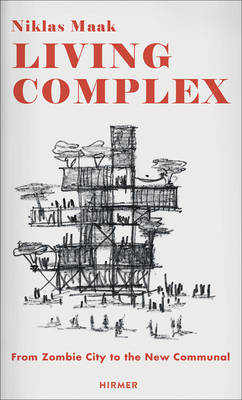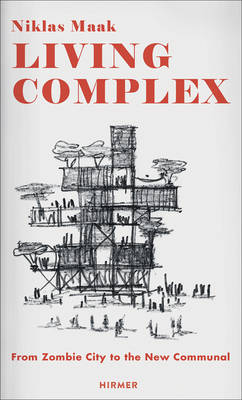
- Retrait gratuit dans votre magasin Club
- 7.000.000 titres dans notre catalogue
- Payer en toute sécurité
- Toujours un magasin près de chez vous
- Retrait gratuit dans votre magasin Club
- 7.000.0000 titres dans notre catalogue
- Payer en toute sécurité
- Toujours un magasin près de chez vous
Description
Cities today have become portfolios of investment properties with token patches of green. The cost to live in a fortress-like luxury housing complex in London or Manhattan is so high that most of us can't afford it. As the masses move to the suburbs, the construction industry responds by churning out clusters of the same barracks-style row houses, ensuring that, there too, one can live in utmost privacy and security. But what do these buildings say about us? Do they have anything to do with the way in which most people actually want to live? Niklas Maak provocatively argues that the construction industry and a number of outdated or poorly thought-out policies have prevented us from rethinking how we live in the city. Yet many of our current crises--from the mortgage crisis to global warming--are closely connected to problematic forms of accommodation in our cities. And the problem will only get worse: Over the next twenty years, influx into the world's cities is expected to create the need for an additional one billion units of housing. Fortunately, Maak shows, there are practicable solutions. In Europe, Japan, and the United States, the author explores promising new forms of housing. Cities should be reflections of their inhabitants--not forces to be contended with. Controversial, yet well-researched and wryly funny, Living Complex is a call for change from the "comfortable defense lines" that epitomize the current sorry state of housing.
Spécifications
Parties prenantes
- Auteur(s) :
- Editeur:
Contenu
- Nombre de pages :
- 240
- Langue:
- Anglais
- Collection :
- Illustré:
- Oui
Caractéristiques
- EAN:
- 9783777424101
- Date de parution :
- 15-11-15
- Format:
- Livre relié
- Format numérique:
- Genaaid
- Dimensions :
- 127 mm x 203 mm
- Poids :
- 340 g

Les avis
Nous publions uniquement les avis qui respectent les conditions requises. Consultez nos conditions pour les avis.






